Fervent, rebellious, as well as defiant, Irish Singer-Songwriter Sinéad O’Connor carried the remarkable ability to channel and manifest her pain into a voice/persona that would make an indelible, global impact. Her rise to fame, fall from grace, and rise again, made her both popular, unpopular, but fulfilled her aim to be a protest singer, rather than a pop star. Sinéad (pronounced Shin-Aid) dared to uncover and address social issues that no one else would. Astounding, this is all while she triumphed musically and moved freely among such music genres as; Alt-Pop, Jazz, and Reggae Pop, Rock, Folk, Country, R&B, and Dance.
Sinéad led a life of fearless activism, hindered by mental health struggles, yet she enjoyed great artistic success permitted only on her own terms. Shockingly, at only the age of 56 she passed on from this world on July 26, 2023. A private funeral was held on August 8th in Bray, County Wicklow near Dublin. A life filled with tragic, but also many bright moments, O’Connor is a compelling figure to reflect on.
Born in Dublin, Ireland on December 8, 1966, to parents John and Marie O’Connor, Sinéad Marie Bernadette O’Connor was one of five children with three brothers, Eoin, John, and Joseph, and one sister, Eimear. At the age of thirteen, after being subject to continued abuse by her mother, she left home. By the age of twenty-one, Sinead would have the number one song in the world with “Nothing Compares 2 U.”
The often soft spoken, fast speaking Sinéad, was a no holds bar non-conformist. She always said what she thought in the most direct of ways. Raised Catholic, the iconic singer was the first to accuse the Catholic Church of child abuse by ripping up a picture of the Pope on live television, and wanted to “rescue God from religion” before she was ordained a priest in the Latin Tridentine church. She shaved her head in an act of defiance against the recording industry’s promotion of her sexuality. She never desired or wanted to achieve “celebrity status” and often boycotted national Awards shows. She had a physical altercation with Prince in defiance of his disapproval of her cussing in interviews. And despite Joe Pesci’s threat to “slap her” for ripping up the picture of the Pope, plus Frank Sinatra’s offer to “kick her ass” for refusing to play the national anthem, Sinéad brazenly continued to make music and have her messages heard no matter what the cost or how big the controversy.

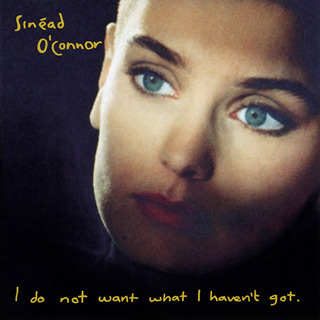
Looking back, a young Sinéad O’Connor began performing in pubs and clubs, and maintained that she was always meant to perform live. She was a Post-Punk rocker influenced by the likes of Siouxsie and the Banshees, the Pretenders, Bob Dylan, David Bowie, and Bob Marley. In her first Irish Times interview in 1986 she said, ‘I don’t need to drink or take drugs. All I need to do is sing.”
In her first foray outside of Ireland, 19-year-old Sinead was asked by U2 Guitarist, the Edge, to co-write and sing on the soundtrack single, “Heroine” for the 1986 film Captive. Impressive, she was under 20 years old when she wrote, recorded, and co-produced her 1987 debut album, The Lion and the Cobra. Stunning, The Lion and the Cobra started as an underground sensation that would become critically acclaimed and achieve international success. It was a strong and unapologetic debut that introduced Sinéad’s beautiful and emotional wails and howls through flawless octave changes. The album’s first single and music video, “Troy,” was directed by John Maybury who also directed many of her other videos throughout her career. A club mix of the track also became a dance hit in both the UK and US. Her second single, “Mandinka,” was a song that showcased Sinéad’s ferocity and passion and gave her the courage to play guitar on the track. “Mandinka,” became a mainstream pop hit in the UK, Ireland and the United States.
Reaching new heights as an artist, this debut album was also nominated for a Grammy for Best Rock Vocal Performance Female at the 31st Annual Grammy Awards. Then, typical to her sincerity, during her Grammy performance she had the logo of the Hip Hop group Public Enemy painted on her head to protest the first-ever Best Rap Performance award being presented off-camera.
Moving forward in March 1990, I Do Not Want What I Haven’t Got, was the second studio album that elevated her to international stardom. It was an extraordinarily, poignant and artful effort that catapulted her popularity and success. In true Punk fashion, this would eventually cause Sinéad to revolt against it. The album featured the singles; “Emperor’s New Clothes,” an alternative radio favorite, and Sinead’s version of the Prince song “Nothing Compares 2 U,” which reached number one around the world. The accompanying music video featured a close-up of Sinéad’s perfect facial features singing with only the purest of emotion.
Naturally, I Do Not Want What I Haven’t Got was nominated for four Grammy Awards including; Record of the Year, Best Female Pop Vocal Performance, and Best Music Video, Short Form and “Nothing Compares 2 U”, won the award for Best Alternative Music Performance. However, Sinead refused to attend the Awards ceremony. As part of her refusal, she wrote an open letter to the Recording Academy criticizing the industry for promoting materialistic values over artistic merit. She did not want “to be part of a world that measures artistic ability by material success.” Despite it all, “Nothing Compares 2 U” remained the number one single around the globe.
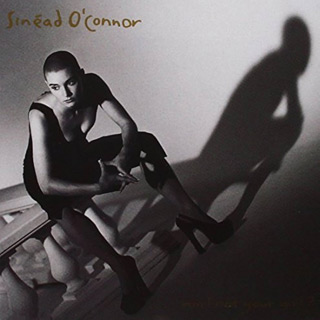

Full of good ideals, as well as a bundle of talent, unfortunately Sinéad’s soaring heights would take a sudden drop only weeks after the release of her third album, Am I Not Your Girl?. On Saturday, Oct. 3, 1992, she appeared on Saturday Night Live and performed an acapella rendition of Bob Marley’s song, “War,” only with her own lyrics about child abuse. At the close of her performance, she looked straight into the camera and ripped up a picture of Pope John Paul II, threw the pieces on the floor and stated: “Fight the real enemy.” This protest triggered hundreds of complaints from viewers and attracted wide criticism. Two weeks later, Sinéad was booed at the 30th anniversary tribute concert for Bob Dylan at Madison Square Garden in New York City. This was by far Sinéad’s most controversial career protest yet, and she remained unapologetic. In fact, she stated that the photo was taken from her mother’s bedroom and she felt the Catholic Church bore some responsibility for the physical, sexual and emotional abuse she had suffered as a child. In her 2021 memoir entitled, Rememberings, Sinéad wrote that she did not regret the protest and that it was more important for her to be a protest singer than a successful pop star.
In all, Sinéad would go on to release 10 studio albums in total. Her fourth album, Universal Mother (1994) featured the song, “A Perfect Indian” honoring Irish Actor Daniel Day Lewis in 1992 movie Last of the Mohicans. Her fifth, 2000’s Faith and Courage, was a record dedicated to all Rastafari people. Then in 2002, Sean-Nós Nua delved into her Irish heritage with thirteen traditional songs set in new arrangements. In 2005 Throw Down Your Arms featured covers of classic roots Reggae songs produced by Sly and Robbie, 2007’s Theology was a double CD featuring both Dublin and London sessions, while 2012’s How About I Be Me (and You Be You)? was a passionate collection of songs about love and loss, hope and regret. And her final album, 2014’s I’m Not Bossy, I’m the Boss, was a subtle yet powerful set of Rock songs. Also releasing one live album, four video albums, thirty-two music videos, and five compilations as well as achieved gold and multi-platinum record status around the world, Sinéad also collaborated with everyone from Peter Gabriel, Massive Attack, Shane McGowan, Asian Dub Foundation, to Van Morrison.
Yet still, there is so much more to her. In 1992, Time Magazine named her “the most influential Woman of the year.” And although she lost various custody battles, she enjoyed motherhood and loved her children very much. In 2017, a lonely and emotionally exhausted Sinéad took to Facebook and was seen crying that her family had abandoned her in the wake of her mental health issues. That next year in 2018, she changed her name to Shuhada’ Sadaqat, and converted to Islam. In 2019, she said she had finally understood her mental health condition after years of incorrect diagnoses and multiple suicide attempts. In fact, in her 2021 memoir, Rememberings, she offered a remarkable and intimate chronicle of her life that recounts her painful childhood growing up in Dublin in a dysfunctional, abusive household.
Bringing more insight to the world about the woman behind the music, in 2022 the Kathryn Ferguson (a friend and admirer of Sinéad) documentary film Nothing Compares received a good deal of attention. The film follows Sinéad’s early career and rise to worldwide fame as well as her exile from the mainstream. A film certainly worth seeing, post Sinéad passing, it is even more emotional.
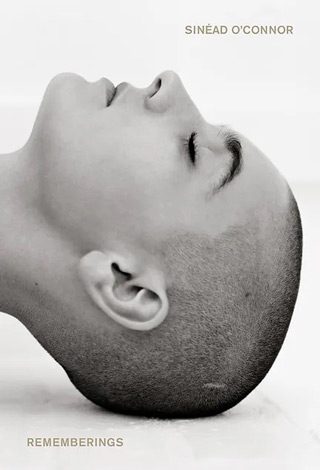
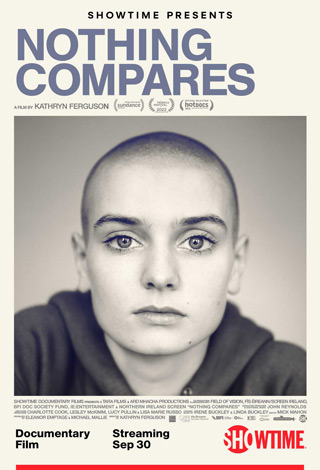
Still receiving praise, early in 2023, Sinéad was awarded for Best Classic Album for “I Do Not Want What I Haven’t Got” at the RTE Choice Music Awards in Ireland, and received a standing ovation. She accepted the award on behalf of all refugees in Ireland. “I love you very much and I wish you happiness,” she said. On July 12th, 2023, Sinead moved back to London, and was finishing an album planned to be released early next year. She said she intended to tour Australia and New Zealand towards the end of 2024 followed by Europe and the United States in early 2025. Heartbreaking to never see this ever become a reality, it will be extremely compelling to her the posthuman album once it is ready to be released.
Must understood, unjustly villainized, Sinéad O’Connor was, in fact, an incredible gift to the world. With her stunning vocals, igniting smile, and beautiful eyes, she will forever be remembered around the world for her musical triumphs, and yes, fearless activism. Her enduring power of both voice and song will prevail forever. Wherever her soul may rest, hopes are that Sinéad O’Connor knows that she is loved very much, and may she finally be happy and at peace.
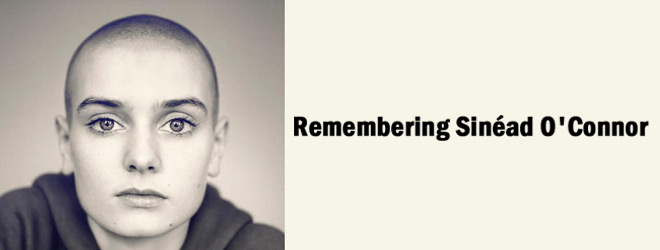




No comment